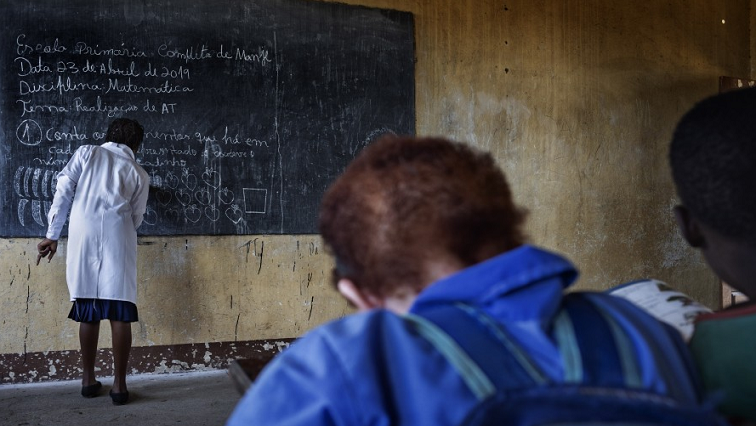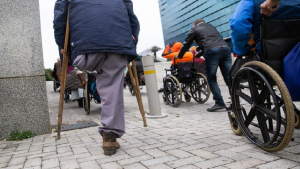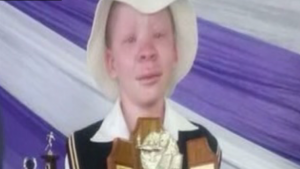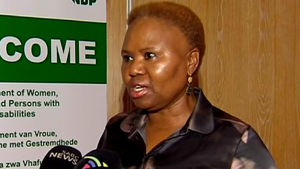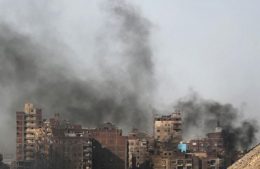Human Rights Watch is calling on the Mozambican government to do more to ensure equal access to education for children living with albinism.
To mark International Albinism Day, the international rights group released a report looking at education barriers for children living with the genetic disorder on Thursday.
The organisation spoke to more than 60 people, including community leaders, children and young adults living with the condition and government officials in Tete province and the country’s capital Maputo.
It found that children with albinism usually drop out of school due to various reasons, including bullying, little to no reasonable accommodation for their low vision, and requirements to participate in physical education classes outside without proper protection from the sun.
In late 2014, there was a surge of attacks on people with albinism in Mozambique, including kidnapping and trafficking with more than 100 incidents reported that year alone. Despite the rate of the attacks and kidnappings having gone down, the report also found that some children are still living in fear.
Government’s response to challenges faced by those living with albinism
In recent years, the Mozambique government has moved to improve security for people living with albinism.
At the Global Disability Summit in 2018 in Britain, it pledged to create inclusive education policies and plans. The move was one of Maputo’s several efforts, including a 2015 Action Plan to deal with violence against people living with the condition, to ensure a fulfilling life for those who live with the disorder.
While recognising the Mozambican government’s efforts, Human Rights Watch says more should be done. It’s urging the government to increase its attempts to dispel deadly myths about albinism through workshops and at outdoor cinemas in the local language, particularly in rural and isolated communities such as those across Tete.
It’s also calling for government to ensure that all teachers in the public education system are trained to adequately provide for the needs of children living with albinism. It’s also advocating for schools to provide resources to meet the children’s needs, including textbooks and exams with larger fonts, and assistive devices to read the blackboard.
“Children with albinism have the same right as everyone else to a quality education with reasonable support to facilitate their learning,” says Human Rights Watch Disability Rights Director, Shantha Barriga.
“By taking steps to make sure that children with albinism can meaningfully get an education while continuing to investigate and prosecute those responsible for attacks, Mozambique has an opportunity to further show its commitment to ensuring the safety, inclusion and dignity for people with albinism,” Barriga adds.
As a priority, Human Rights Watch says Mozambique’s government should also carry out the recommendations outlined in the Regional Action Plan on Albinism in Africa, the first continental strategy to address violations against people with albinism.
The plan has been endorsed by the African Commission on Human and People’s Rights in 2017.
It contains a series of immediate to long-term measures focused on protection, prevention, accountability, and non-discrimination.
Albinism is a relatively rare genetic disorder where a person produces little or no melanin in their skin. While the condition affects one out of about every 17 000 to 20 000 people in Europe and North America, it is more widespread in Sub-Saharan Africa where it reportedly affects one in 1 000 people.
Although not everyone with albinism has a disability, the melanin deficit can result in low vision and an increased vulnerability to the sun’s ultra-violet rays. People with albinism living in Sub-Saharan African are about 1 000 times more likely to develop skin cancer than the general population.


